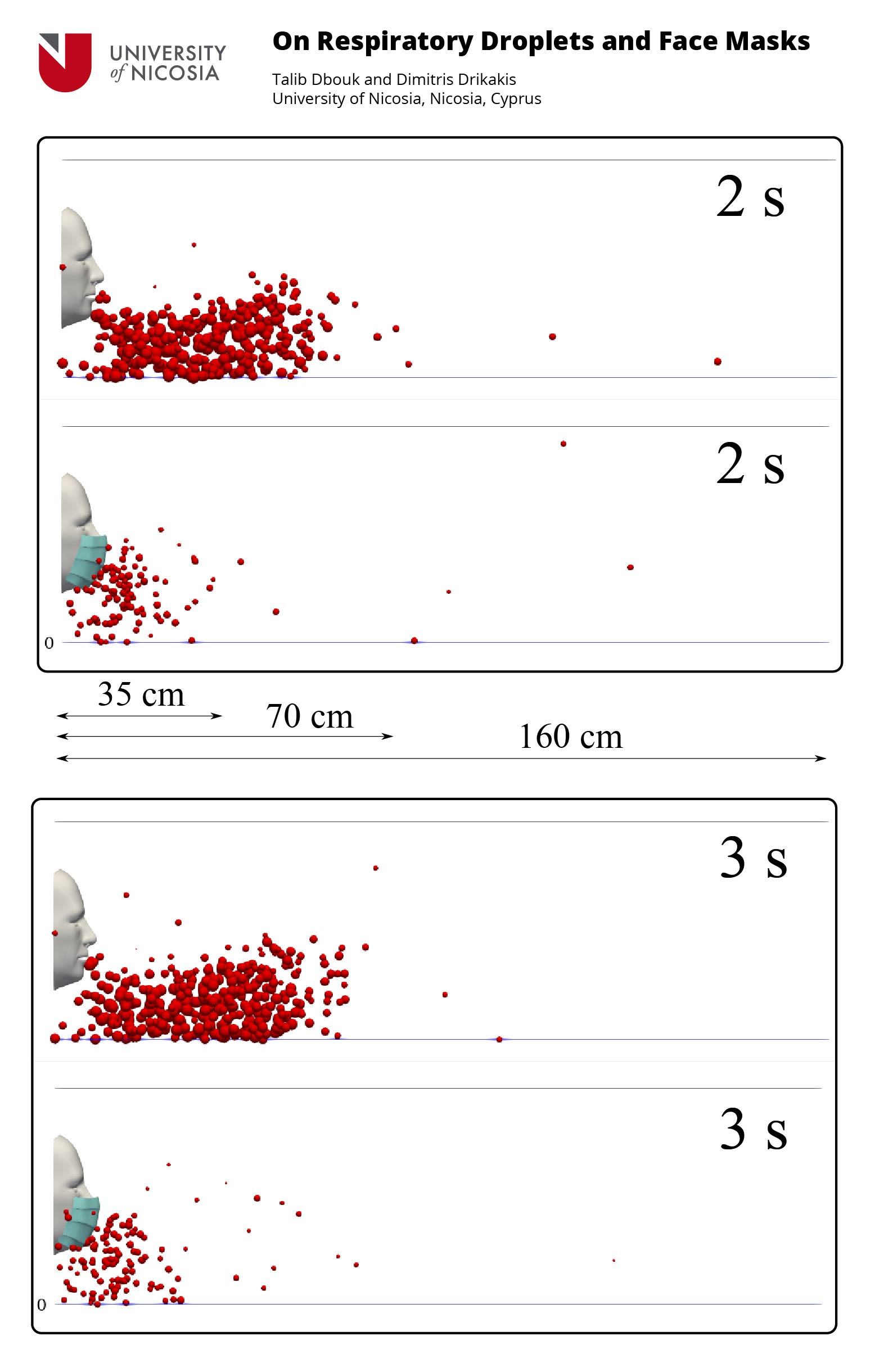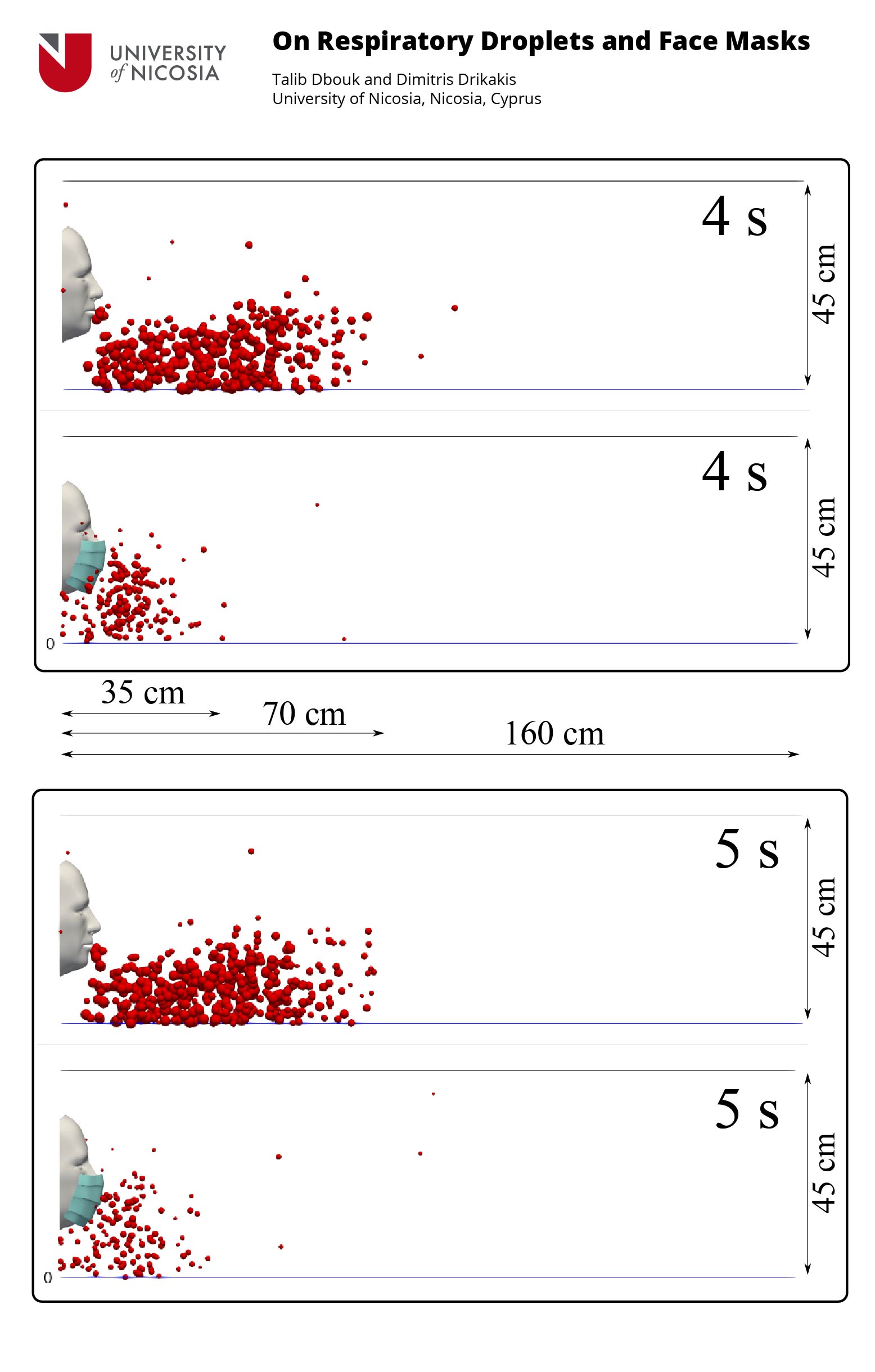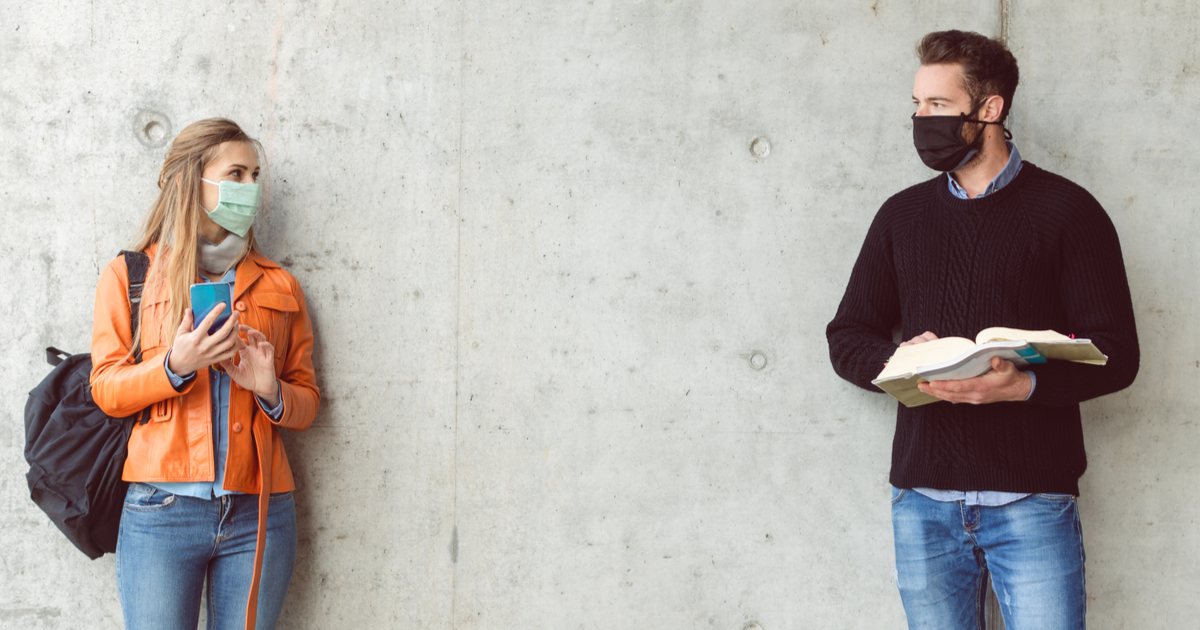Repeated Coughing Seriously Degrades Face Mask Efficiency
University of Nicosia researchers Dbouk and Drikakis return with more important input in reviewing social distancing guidelines. According to their latest paper in Physics of Fluids, small droplets of saliva can emerge from a face mask, with some droplets then traveling as far as 1 metre.
Face masks are thought to slow the spread of viruses, including the novel coronavirus that causes COVID-19, but little is known about how well they work.
In a paper published this week in Physics of Fluids, by AIP Publishing (On respiratory droplets and face masks), Dr. Talib Dbouk and Professor Dimitris Drikakis, from the University of Nicosia (UNIC) in Cyprus, use precise computer models to map out the expected flow patterns of small droplets released when a mask-wearing person coughs repeatedly.
Previous work from this research group showed droplets of saliva can travel 6 metres in five seconds when an unmasked person coughs, garnering a truly global impact. Their findings have been widely publicized by major news outlets, with a list of press mentions available on the AIP Publishing website. The paper itself is the most downloaded in the history of the journal.
This new work used an extended model to consider the effect of face masks and multiple cycles of coughing. The results show masks can reduce airborne droplet transmission. However, the filtering efficiency of masks is adversely affected by repeated coughing, as might happen when an individual is ill. In such a case, repeated coughs reduce the efficiency, letting many more droplets through.
The model was created using complex mathematical equations for turbulence and other flow effects. A sequence of coughs was modeled by applying several cycles of forward-directed velocity pulses to the initial droplets. The researchers performed numerical simulations that account for droplet interactions with the porous filter in a surgical mask.
The results are alarming. Even when a mask is worn, some droplets can travel a considerable distance, up to 1 metre, during periods of mild coughing. Without a mask, droplets travel twice as far, however, so wearing a mask will help. A mask also decreases the number of droplets that leak out the side of the mask but fails to eliminate it entirely.
These calculations also revealed an effect on the droplet size due to turbulent flow encountering the mask, escaping and entering the environment. “The droplet sizes change and fluctuate continuously during cough cycles as a result of several interactions with the mask and face,” noted Drikakis, a Professor in both the School of Sciences and Engineering and the Medical School of the University of Nicosia. Dbouk, a Senior Researcher at the University of Nicosia, explained how droplet sizes might change. “Masks decrease the droplet accumulation during repeated cough cycles. However, it remains unclear whether large droplets or small ones are more infectious”, he added.
“The use of a mask will not provide complete protection,” stressed Drikakis. “Therefore, social distancing remains essential.” For health care workers, the investigators recommend much more complete personal protective equipment, including helmets with built-in air filters, face shields, disposable gowns and double sets of gloves. The investigators also urge manufacturers and regulatory authorities to consider new criteria for assessing mask performance that account for flow physics and cough dynamics. Moreover, they proposed a new criterion for mask performance assessment.
Those interested can find out more about Dbouk and Drikakis’s latest research findings, as well as access the full paper published in Physics of Fluids via the University of Nicosia website: www.unic.ac.cy/coronavirus/masks/
The authors’ AIP articles are also featured on the University’s dedicated Coronavirus Health and Research Portal, along with resources focused on the novel coronavirus, including an online COVID-19 diagnostic tool, healthy living tips, and ongoing UNIC faculty research and analysis. Many UNIC faculty are actively involved in helping respond to the unprecedented public health and societal challenge the pandemic has caused and welcome collaborations with other universities or stakeholders. Please contact the University of Nicosia at [email protected] if there is interest in collaborating on COVID-19 related research.


Caption A subject coughing in a cyclic incidence. A qualitative examination of airborne droplet transmission with and without wearing a mask. The top and bottom figures show the results at 2 s and 3 s (on the left) and 4 s and 5 s (on the right). Wearing a mask that exhibits an initial efficiency of ∼91%. Μany droplets penetrate the mask shield and some saliva droplet disease-carrier particles can travel more than 1.2 m. For visualization, the droplets were scaled by a factor of 600 compared to their actual size.
ABOUT THE JOURNAL
Physics of Fluids is devoted to the publication of original theoretical, computational, and experimental contributions to the dynamics of gases, liquids, and complex fluids. You can find out more at: https://aip.scitation.org/journal/phf.

